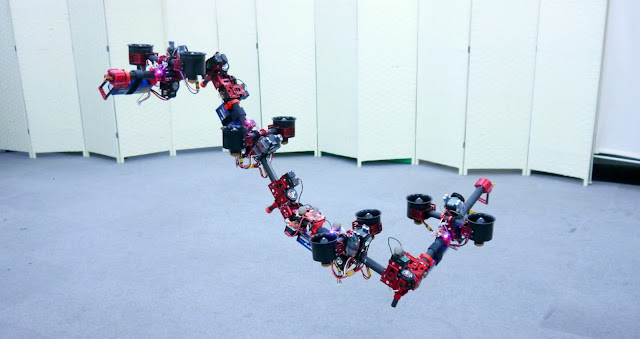Understanding the Rise of Blockchain Beyond Bitcoin
Introduction
Blockchain
technology, originally introduced as the supporting structure for Bitcoin, has
transcended its cryptocurrency origins to surface as a revolutionary force
across different industries. Beyond its association with digital coins,
blockchain is gradually recognized for its potential to convert traditional
systems and processes. In this blog, we will dig into the factors contributing
to the rise of blockchain beyond Bitcoin, its different usages, and the
implications for the future.
Blockchain
is a decentralized and distributed record technology that allows for secure and
transparent record-keeping of deals. It operates on a network of computers,
called nodes, which altogether validate and store transactional data. Each
transaction is noted in a" block" and linked to the prior block,
creating a chain of information. The decentralized nature of blockchain ensures
that no single being has control over the entire network, making it much more secure
and tamper-resistant.
1.
Decentralization and Trust
One of the
crucial reasons behind blockchain's rise beyond Bitcoin is its underlying
concept of decentralization. Unlike traditional centralized systems, where a
central authority governs deals and data, blockchain operates on a peer-to-peer
network. This decentralized nature fosters faith as deals are validated by a
network of participants, reducing the reliance on mediators. This newfound
trust has paved the way for blockchain to be applied to different industries.
2.
Immutable and Transparent Ledger
Blockchain's
core feature, the immutable and transparent statement, is priceless across
sectors. Once a transaction is added to a block, it can not be changed,
guaranteeing the integrity of records. Transparency is also maintained, as all
participants can examine the entire transaction history. This property is
particularly vital in industries like supply chain management, healthcare, and
voting systems, where data precision and transparency are utmost.
3. Smart
Contracts
Smart
contracts are self-executing contracts with the tenures and conditions written
into code. These contracts automatically execute when predefined conditions are
satisfied. This automation eliminates the need for middlemen, simplifying
processes in areas like legal agreements, insurance, and real estate deals.
4.
Tokenization of Assets
Blockchain
enables the fractional possession and trade of assets through tokenization. Real-world
assets like real estate, art, and even stocks can be described as digital
tokens on the blockchain. This opens up chances for higher liquidity and access
to investments that were earlier confined.
5. Supply
Chain and Provenance
Blockchain's
capability to trace the origin and travel of products is vital in industries
like farming and luxury goods. Consumers can validate the authenticity and
origin of products, helping combat fakes and securing ethical sourcing.
6. Financial
Services
Blockchain
is revolutionizing the financial sector with usages like cross-border payments,
remittances, and decentralized finance( DeFi). It offers swift, additional
cost-effective solutions compared to traditional banking systems.
7. Healthcare
In
healthcare, patient reports can be securely stored on a blockchain, securing
data privacy and interoperability among different providers. Also, the
technology can be applied to track the authenticity of medicines and medical
stuff.
8. Energy
and Sustainability
Blockchain
is being utilized for energy trading, permitting individuals and associations
to buy and sell extra renewable energy. This promotes sustainability by
incentivizing the use of clean energy sources.
9.
Government and Voting Systems
Governments
are exploring blockchain for secure and transparent voting systems. This could
help exclude voter fraud and increase voter turnout by enabling remote voting.
10.
Digital Identity
Blockchain
has the potential to transform digital identity governance by delivering a
secure and decentralized solution. With blockchain, individuals can hold
control over their digital identities, ruling out the need for multiple
usernames and passwords. It can also help in authenticating the genuineness of
identities, reducing fraud and identity theft.
11. Real
Estate
Blockchain
technology can simplify and streamline real estate deals by digitizing property
records and automating processes. It can deliver a secure and transparent
platform for buying, selling, and transferring property titles. Blockchain-based
smart contracts can ease automated property transfers, reducing the need for
brokers and minimizing the threat of fraud.
Challenges and Future Outlook
While the
prospect of blockchain is vast, some challenges require to be addressed for
wide relinquishment. These include scalability, energy consumption,
administrative considerations, and interoperability between different
blockchain networks. Yet, ongoing study and development are working towards
overcoming these challenges and unleashing the full prospect of blockchain
technology.
The rise
of blockchain beyond Bitcoin signifies a move towards decentralized,
transparent, and secure systems across industries. As associations and
individuals recognize the benefits of blockchain, its acceptance is anticipated
to increase, leading to innovative solutions and converting traditional
processes.
Conclusion
Blockchain
technology, originally associated with cryptocurrencies like Bitcoin, has
surfaced as a disruptive force with far-reaching implications. The rise of
blockchain beyond Bitcoin signifies a step in how we see and interact with
technology. Its decentralized, transparent, and inalterable characteristics
have opened doors to a wide range of usages across different industries. As
blockchain continues to evolve, its implicit to reshape traditional systems,
enhance trust, and drive invention remains promising. Embracing this technology
and exploring its myriad possibilities will be crucial to adapting to the
digital age and utilizing the benefits it offers.
Please
note that the information delivered is based on real-time sources and general
observations about the rise of blockchain beyond Bitcoin. The specific usages
and impact of blockchain may differ across industries and regions. For the most
accurate and up-to-date information, it's recommended to consult dependable
sources and experts in the field of blockchain technology.



Comments
Post a Comment